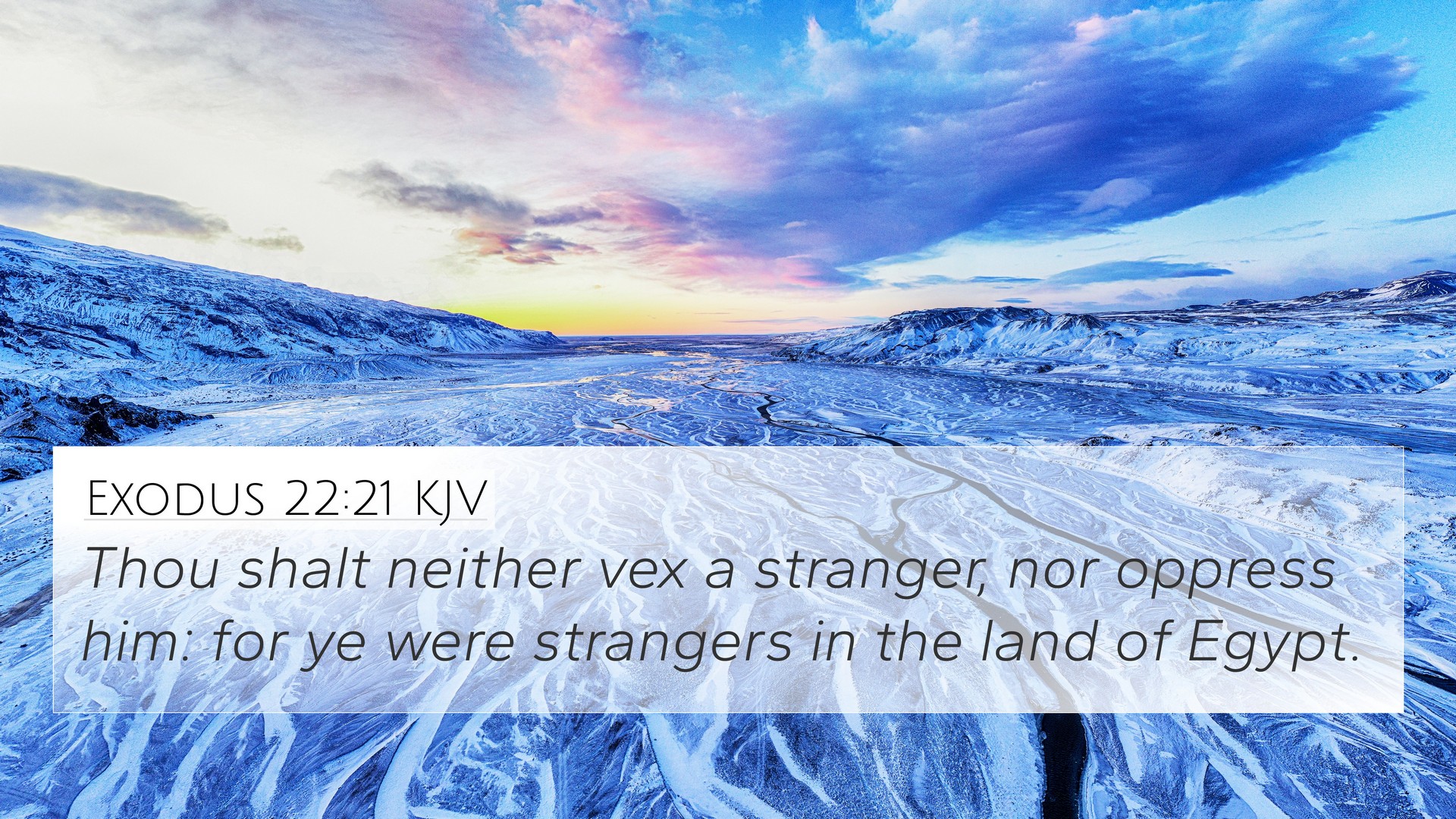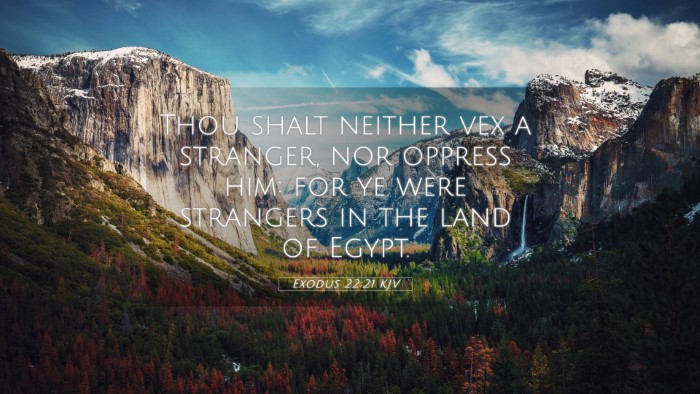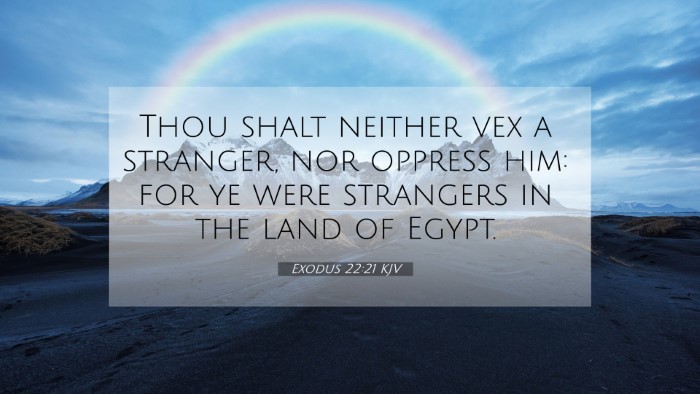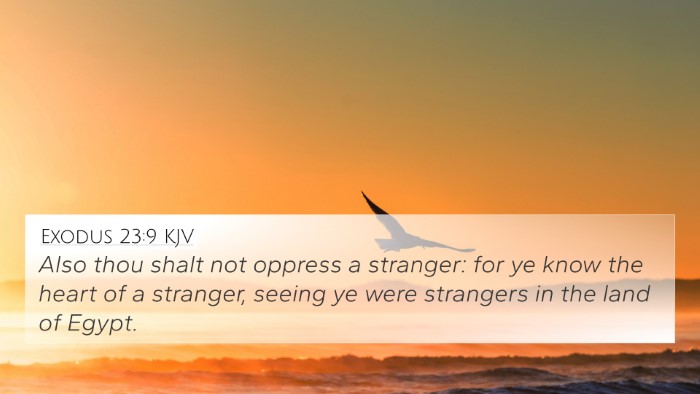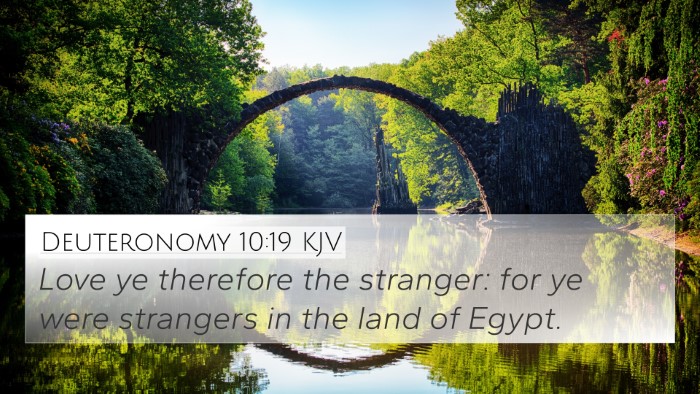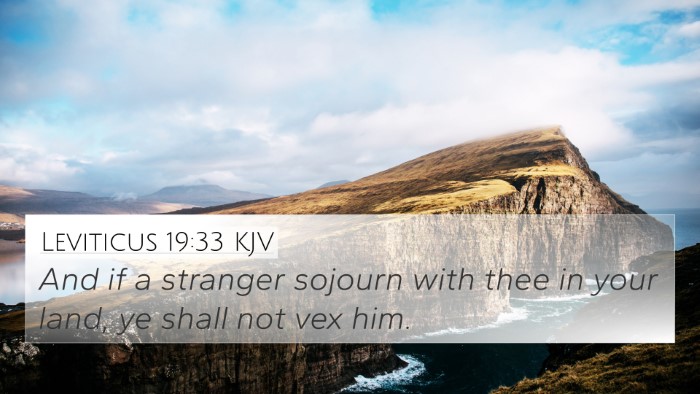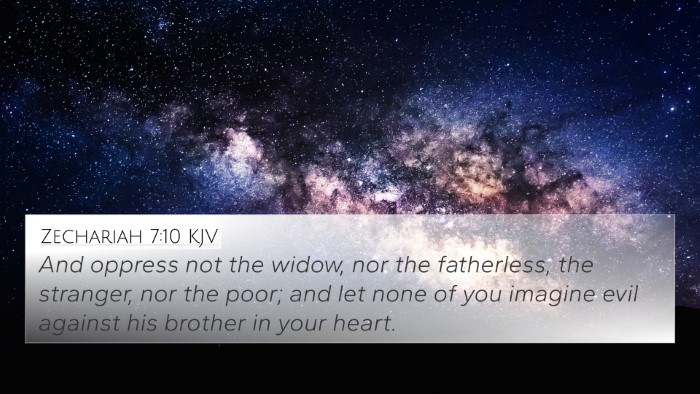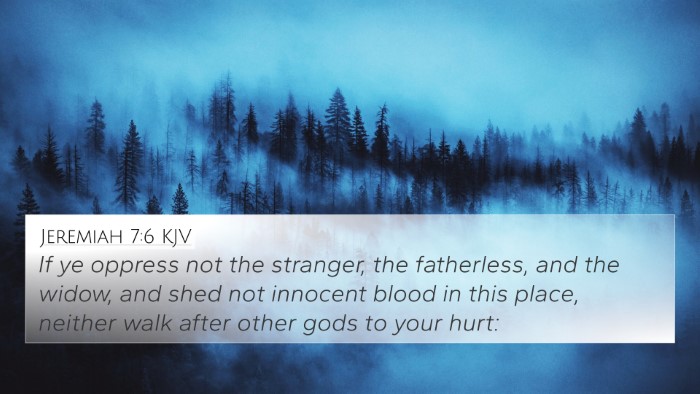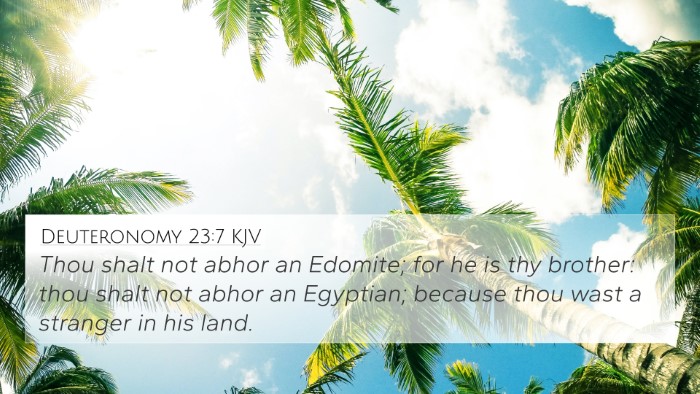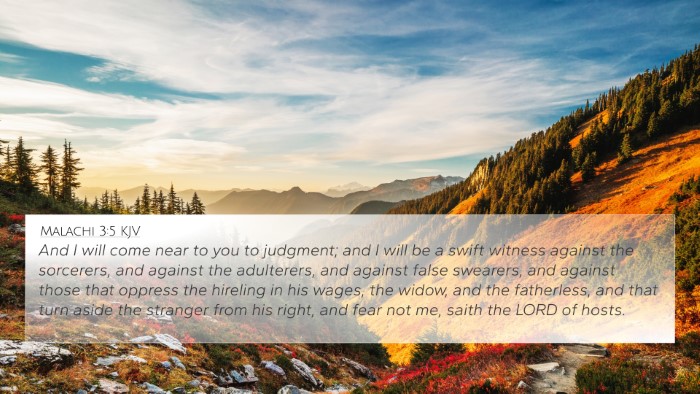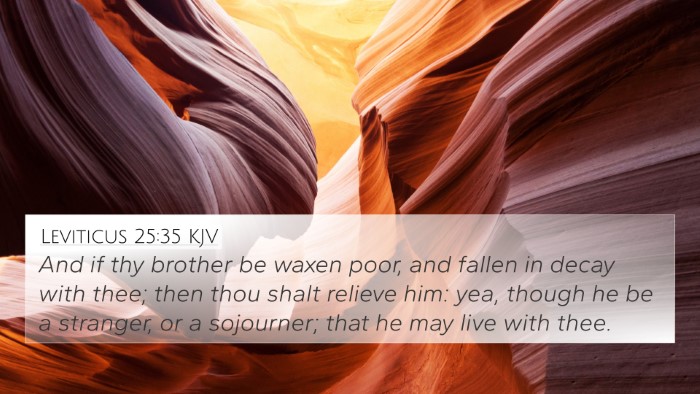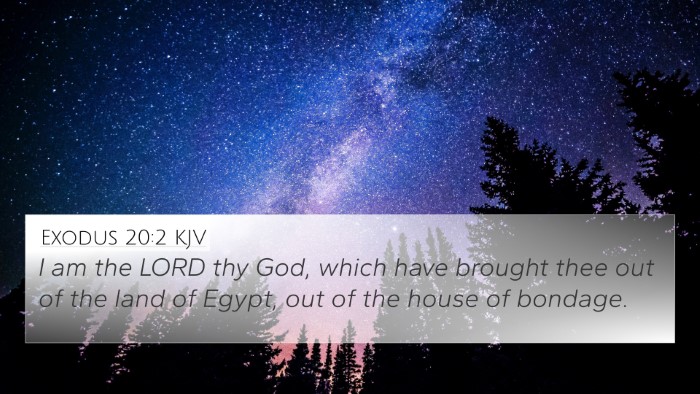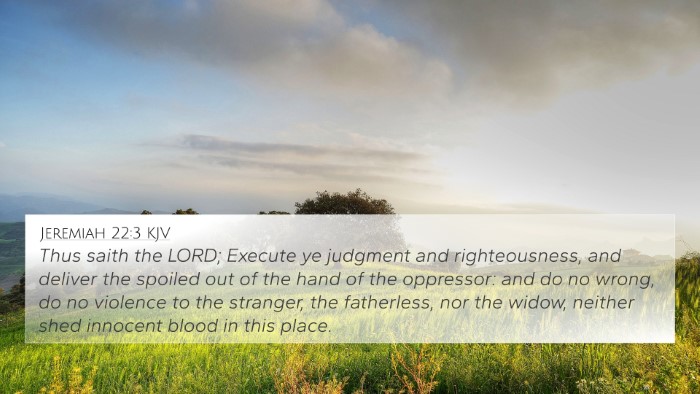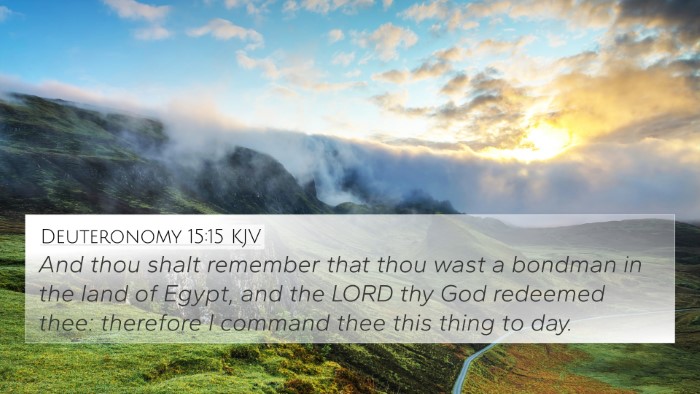Understanding Exodus 22:21
Exodus 22:21 states, "You shall not wrong a stranger or oppress him, for you were strangers in the land of Egypt: I am the Lord your God."
Contextual Overview
This verse commands the people of Israel to show compassion towards strangers, echoing their own history as strangers in Egypt. It emphasizes the moral obligation to treat others justly, particularly those who may be vulnerable or marginalized.
Commentary Insights
Matthew Henry
According to Matthew Henry, this command is rooted in the principle of empathy and social responsibility. He notes that God's remembrance of the Israelites' plight in Egypt serves as a powerful reminder of their duty to treat others kindly and justly. Henry emphasizes that the call to protect the stranger reflects God's justice, encouraging believers to act with mercy as they have received mercy.
Albert Barnes
Albert Barnes highlights that this command is unique as it ties the treatment of others to the collective memory of suffering. He suggests that the reminder of past hardships is meant to foster a spirit of generosity and kindness within a community. Barnes underlines that acknowledging one’s history should cultivate emotional and ethical responses towards those in similar situations.
Adam Clarke
Adam Clarke elaborates on the theological implications of this verse, linking it to God’s nature as compassionate and just. Clarke asserts that the Israelites, having experienced oppression, must be sensitive to the struggles of others. He argues that this reflects the wider biblical theme of love and compassion that God demands from His people, urging them to create a just society where love prevails.
Bible Verse Cross-References
This verse connects strongly with several other scriptures that underline the theme of compassion and justice:
- Leviticus 19:34: "You shall treat the stranger who sojourns with you as the native among you..."
- Deuteronomy 10:19: "Love the sojourner, therefore, for you were sojourners in the land of Egypt..."
- Psalms 146:9: "The Lord watches over the sojourners; he upholds the widow and the fatherless..."
- Matthew 25:35: "For I was hungry and you gave me food, I was thirsty and you gave me drink, I was a stranger and you welcomed me..."
- Hebrews 13:2: "Do not neglect to show hospitality to strangers..."
- Micah 6:8: "He has told you, O man, what is good; and what does the Lord require of you but to do justice..."
- James 2:1: "My brothers, show no partiality as you hold the faith in our Lord Jesus Christ..."
Thematic Connections
The connections between these verses form a narrative of care and responsibility towards the vulnerable and oppressed. This theme is prevalent throughout both the Old and New Testaments, showcasing a consistent message of empathy and justice.
Inter-Biblical Dialogue
The act of cross-referencing biblical texts enhances our understanding of the instruction found in Exodus 22:21. Such connections can be utilized as tools for deeper biblical study. By linking themes such as justice, compassion, and the experience of oppression across various passages, believers are equipped to interpret the scriptures holistically.
Tools for Bible Cross-Referencing
For those interested in exploring the depths of scripture, utilizing a Bible concordance or a cross-reference guide is beneficial. These resources aid in finding Bible verses that relate to each other, significantly enriching the study experience.
How to Use Bible Cross-References
Engaging with cross-references involves identifying themes, exploring connections, and integrating insights into one’s understanding of faith. A cross-reference Bible study allows for an in-depth examination of similar teachings and principles, thus fostering a broader comprehension of scripture.
Conclusion
Exodus 22:21 serves not only as a directive for behavior but as a testament to the character of God and His expectations. The context of historical suffering molds the ethical considerations laid out in this verse, making it a cornerstone for social justice within the Christian faith. By employing methods of cross-referencing biblical texts, readers can gain a fuller appreciation of the unified message of compassion and justice throughout the scriptures.
Further Study Suggestions
Those keen on understanding the interrelatedness of scripture may look into:
- How to find cross-references in the Bible
- Identifying connections between Old and New Testament
- Cross-referencing Psalms with New Testament teachings
- Comparative study of Pauline epistles
